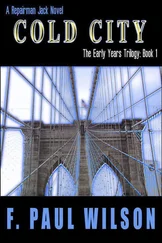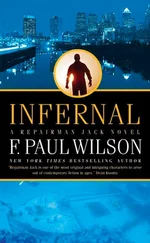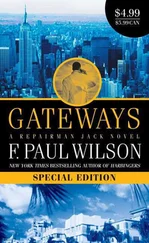F. Paul Wilson - The Keep
Здесь есть возможность читать онлайн «F. Paul Wilson - The Keep» весь текст электронной книги совершенно бесплатно (целиком полную версию без сокращений). В некоторых случаях можно слушать аудио, скачать через торрент в формате fb2 и присутствует краткое содержание. Жанр: Ужасы и Мистика, на английском языке. Описание произведения, (предисловие) а так же отзывы посетителей доступны на портале библиотеки ЛибКат.
- Название:The Keep
- Автор:
- Жанр:
- Год:неизвестен
- ISBN:нет данных
- Рейтинг книги:3 / 5. Голосов: 1
-
Избранное:Добавить в избранное
- Отзывы:
-
Ваша оценка:
- 60
- 1
- 2
- 3
- 4
- 5
The Keep: краткое содержание, описание и аннотация
Предлагаем к чтению аннотацию, описание, краткое содержание или предисловие (зависит от того, что написал сам автор книги «The Keep»). Если вы не нашли необходимую информацию о книге — напишите в комментариях, мы постараемся отыскать её.
The Keep — читать онлайн бесплатно полную книгу (весь текст) целиком
Ниже представлен текст книги, разбитый по страницам. Система сохранения места последней прочитанной страницы, позволяет с удобством читать онлайн бесплатно книгу «The Keep», без необходимости каждый раз заново искать на чём Вы остановились. Поставьте закладку, и сможете в любой момент перейти на страницу, на которой закончили чтение.
Интервал:
Закладка:
Unarmed civilians ... the words lingered ... and as they did, a smile crept slowly into the corners of his mouth, leaving his eyes untouched.
Let the SS come. Woermann was now convinced there was an unarmed civilian of sorts at the root of all the deaths in the keep. But not the helpless cringing sort the SS was used to. Let them come. Let them taste the fear they so dearly loved to spread. Let them learn to believe in the unbelievable.
Woermann believed. A week ago he would have laughed at the thought. But now, the nearer the sun to the horizon, the more firmly he believed... and feared. All within a week. There had been unanswered questions when they had first arrived at the keep, but no fear. A week. Was that all? It seemed ages ago that he had first laid eyes on the keep...
ONE
In Summation: The refining complex at Ploiesti has relatively good natural protection to the north. The Dinu Pass through the Transylvanian Alps offers the only overland threat, and that a minor one. As detailed elsewhere in the report, the sparse population and spring weather conditions in the pass make it theoretically possible for a sizable armored force to make its way undetected from the southwest Russian steppes, over the southern Carpathian foothills, and through the Dinu Pass to emerge from the mountains a scant twenty miles northwest of Ploiesti with only flat plains between it and the oil fields.
Because of the crucial nature of the petrol supplied by Ploiesti, it is recommended that until Operation Barbarossa is fully under way, a small watch force be set up within the Dinu Pass. As mentioned in the body of the report, there is an old fortification midway along the pass which should serve adequately as a sentry base.
DEFENSE ANALYSIS FOR PLOIESTI, ROMANIA Submitted to Reichswehr High Command 1 April 1941
Dinu Pass, Romania
Tuesday, 22 April
1208 hours
No such thing as a long day here, no matter what the time of year, thought Woermann as he looked up the sheer mountain walls, an easy thousand feet high on either side of the pass. The sun had to climb a 30-degree arc before it could peek over the eastern wall and could travel only 90 degrees across the sky before it was again out of sight.
The sides of the Dinu Pass were impossibly steep, as close to vertical as mountain wall could be without overbalancing and crashing down; a bleak expanse of stark, jagged slabs with narrow ledges and precipitous drops, relieved occasionally by conical collections of crumbling shale. Brown and gray, clay and granite, these were the colors, interspersed with snatches of green. Stunted trees, bare now in the early spring, their trunks gnarled and twisted by the wind, hung precariously by tenacious roots that had somehow found weak spots in the rock. They clung like exhausted mountaineers, too tired to move up or down.
Close behind his command car Woermann could hear the rumble of the two lorries carrying his men, and behind them the reassuring rattle of the supply truck with their food and weapons. All four vehicles were crawling in line along the west wall of the pass where for ages a natural shelf of rock had been used as a road. The Dinu was narrow as mountain passes go, averaging only half a mile across the floor along most of its serpentine course through the Transylvanian Alps—the least explored area of Europe. Woermann looked longingly at the floor of the pass, fifty feet below to his right; it was smooth and green and pathed along its center. It would have been a smoother, shorter trip down there, but his orders warned that their destination was inaccessible to wheeled vehicles from the floor of the pass. They had to keep to the ridge road.
Road? Woermann snorted. This was no road. He would have classed it as a trail or, more appropriately, a ledge. A road it was not. The Romanians hereabouts apparently did not believe in the internal combustion engine and had made no provisions for the passage of vehicles using it.
The sun disappeared suddenly; there was a rumble, a flash of lightning, and then it was raining again. Woermann cursed. Another storm. The weather here was maddening. Squalls repeatedly swooped down between the walls of the pass, spearing lightning in all directions, threatening to bring the mountains down with their thunder, dumping rain in torrents as if trying to lose ballast so they could rise over the peaks and escape. And then they would be gone as abruptly as they had arrived. Like this one.
Why would anyone want to live here? he wondered. Crops grew poorly, yielding enough for subsistence and little more. Goats and sheep seemed to do well enough, thriving on the tough grasses below and the clear water off the peaks. But why choose a place like this to live?
Woermann had his first look at the keep as the column passed through a small flock of goats clustered at a particularly sharp turn in the path. He immediately sensed something strange about it, but it was a benign strangeness. Castlelike in design, it was not classified a castle because of its small size. So it was called a keep. It had no name, and that was peculiar. It was supposedly centuries old, yet it looked as if the last stone had been slipped into place only yesterday. In fact, his initial reaction was that they had made a wrong turn some where. This could not possibly be the deserted 500-year-old fortification they were to occupy.
Halting the column, he checked the map and confirmed that this indeed was to be his new command post. He looked at the structure again, studying it.
Ages ago a huge flat slab of rock had thrust itself out from the western wall of the pass. Around it ran a deep gorge through which flowed an icy stream that appeared to spring from within the mountain. The keep sat on that slab. Its walls were sleek, perhaps forty feet high, made of granite block, melting seamlessly into the granite of the mountainside at its rear—the work of man somehow at one with the work of nature. But the most striking feature of the small fortress was the solitary tower that formed its leading edge: flat-topped, jutting out toward the center of the pass, at least 150 feet from its notched parapet to the rocky gorge below. That was the keep. A holdover from a different age. A welcome sight in that it assured dry living quarters during their watch over the pass.
But strange the way it looked so new.
Woermann nodded to the man next to him in the car and began folding the map. His name was Oster, a sergeant; the only sergeant in Woermann's command. He doubled as a driver. Oster signaled with his left hand and the car moved forward with the other three vehicles following. The road—or trail, rather—widened as they swung farther around the bend, and came to rest in a tiny village nestled against the mountainside south of the keep, just across the gorge from it.
As they followed the trail into the center of the village, Woermann decided to reclassify that as well. This was no village in the German sense; this was a collection of stucco-walled, shake-roofed huts, all single-story affairs except for the one at the northernmost end. This stood to the right, had a second floor and a sign out front. He didn't read Romanian but had a feeling it was an inn of sorts. Woermann couldn't imagine the need for an inn—who would ever come here?
A few hundred" feet or so beyond the village, the trail ended at the edge of the gorge. From there a timbered causeway supported by stone columns spanned the 200 feet or so across the rocky gorge, providing the keep's sole link to the world. The only other possible means of entry were to scale its sheer stone walls from below, or to slide and rope-hop down a thousand feet of equally sheer mountainside from above.
Woermann's practiced military eye immediately assessed the strategic values of the keep. An excellent watchpost. This entire stretch of the Dinu Pass would be in plain view from the tower; and from the keep's walls fifty good men could hold off an entire battalion of Russians. Not that Russians would ever be coming through the Dinu Pass, but who was he to question High Command?
Читать дальшеИнтервал:
Закладка:
Похожие книги на «The Keep»
Представляем Вашему вниманию похожие книги на «The Keep» списком для выбора. Мы отобрали схожую по названию и смыслу литературу в надежде предоставить читателям больше вариантов отыскать новые, интересные, ещё непрочитанные произведения.
Обсуждение, отзывы о книге «The Keep» и просто собственные мнения читателей. Оставьте ваши комментарии, напишите, что Вы думаете о произведении, его смысле или главных героях. Укажите что конкретно понравилось, а что нет, и почему Вы так считаете.












